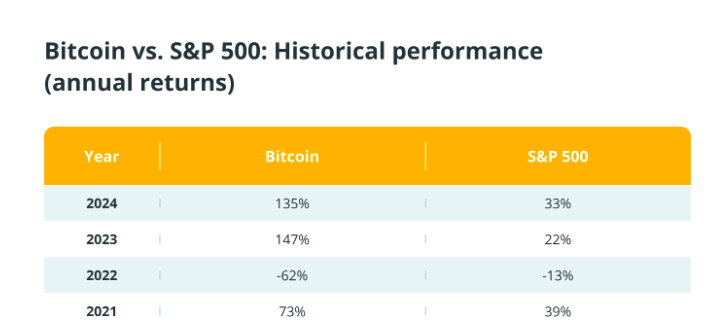

2026 Outlook: Tax Reform Update and Trading Investment Plan Communication
Dear Valued Clients and Esteemed Investors,
We extend our sincere appreciation to you for your continued trust, cooperation, and partnership with Akinyele Oluwale & Co. Your confidence and commitment remain fundamental to our ability to serve you effectively across our tax advisory and trading investment plan engagements.
Tax Reform Update
We commend our clients for their consistent fulfillment of tax obligations and their contribution to Nigeria’s socio-economic development during the last fiscal year. Your compliance—whether as corporate entities or individual taxpayers—plays a critical role in national growth, infrastructure development, and public service delivery.
As we transition into 2026, Nigeria’s ongoing Tax Reform agenda is aimed at building a fairer, simpler, and more growth-oriented tax system. Key developments include enhanced tax administration through expanded digital platforms, the transition from FIRS to the Nigeria Revenue Service (NRS), reduced compliance burdens, and improved taxpayer services. Importantly, the reforms prioritize broadening the tax base rather than increasing tax rates, encouraging voluntary compliance, and strengthening transparency and accountability in tax revenue utilization.
Corporate taxpayers continue to benefit from reforms that support ease of doing business, clearer regulatory guidance, and incentives for investment and job creation. Individual taxpayers equally benefit from improved taxpayer identification systems, balanced enforcement mechanisms, and increased taxpayer education and awareness.
We remain fully committed to keeping you informed, compliant, and strategically positioned under the evolving tax landscape.
Trading Investment Plan Update
Reflecting on the 2025 financial year, we sincerely appreciate your patience, trust, and confidence in our investment operations. The year presented significant global and local market challenges that impacted financial markets broadly. These conditions contributed to the delayed and, in some instances, failed payouts experienced during the period.
We wish to clearly reaffirm that these setbacks were driven by market conditions and not by any lack of commitment, integrity, or operational diligence on our part.
Looking ahead to 2026, we remain firmly focused on stabilizing operations and addressing outstanding payout obligations. Strategic measures are already being implemented to mitigate market risks, strengthen performance, and enhance resilience. We are confident that these steps will support improved outcomes in the near term.
We deeply value your partnership and remain committed to transparency, accountability, and sustainable long-term growth.
Thank you for your continued support as we move forward together.
Yours faithfully,
Akinyele Oluwale & Co.



AI is set to boost innovation and efficiency across various industries, sectors, and facets of our lives, undoubtedly driving enhancements in technology such as Bitcoin regarding efficiency and, ideally, scalability. But what about stocks? Is the idea of investing in them becoming obsolete? Let’s delve deeper into this topic.
What is the argument for investing in stocks?
The first stock market in the world emerged in Amsterdam in 1602 with the establishment of the Dutch East India Company. Initially, it served as a venue for trading shares of the company, but it quickly evolved into a blueprint for capital raising and investment. By the late 17th century, London had created its own trading centers, while New York's stock exchange would not appear until 1792, thereby extending this model across the Atlantic.
Stocks signify ownership in corporations, and the stock market is the platform where investors engage in buying and selling these shares. The values of stocks vary according to company performance and market dynamics, including their capacity to adapt to technological advancements such as AI.
Companies that have embraced technological progress throughout history have weathered economic downturns, wars, and the disruptions brought about by technology. Without the advantage of hindsight, it appears that the same could hold true for firms investing in AI.
In particular, businesses that leverage AI through automation, data analysis, and innovative business strategies are poised for success.
Historically, market indices like the S&P 500 have provided around 7%-10% annualized returns over the years, adjusted for inflation. This index monitors the performance of 500 of the largest publicly traded companies in the US and is commonly regarded as a standard for the overall stock market.
In comparison to the S&P 500, Bitcoin's BTC $112,030 performance has been remarkably superior, as illustrated in the accompanying table.
What is the argument for Bitcoin?
Bitcoin is a relatively recent innovation, developed in 2009 by the anonymous Satoshi Nakamoto.
The initiative was presented in a white paper that outlined a peer-to-peer electronic cash system utilizing blockchain technology.
The argument for Bitcoin extends beyond merely being an investment vehicle or a store of value. It proposes a genuine monetary revolution that competes with gold and other financial instruments.
Its decentralized structure defies central authority and the inflation typically seen in fiat currencies. With a limited supply capped at 21 million coins, Bitcoin’s scarcity attracts those looking for a safeguard against monetary devaluation.
Additionally, the transparency and security of blockchain are well-suited to the requirements of AI for reliable data.
Throughout the years, Bitcoin has positioned itself as both a store of value and an alternative currency, while still aiming to achieve its initial objective of becoming a widely accepted medium of exchange.
How AI influences stocks and the stock market
The upcoming 50 years may pose a significant challenge to the stock market's existence as a fundamental institution, as noted by analyst and investor Jordi Visser, who suggests that "artificial intelligence is accelerating innovation cycles, rendering public companies less effective as investment options."
Stocks have existed for a considerable time, yet AI-driven changes create little space for complacency, and firms that do not evolve risk being left behind. This is particularly relevant for major tech players like the FAANG stocks (Facebook, Amazon, Apple, Netflix, and Google). Although they are some of the largest investors in AI, these companies must continue to adapt to swift advancements and implement them successfully.
AI will also influence the stock market by rapidly processing vast amounts of data, forecasting market trends, and automating decision-making processes, leading to quicker and more efficient operations. The presence of AI will significantly alter how investors approach trading and investment strategies.
In summary, AI is expected to enhance corporate innovation while simultaneously increasing the divide between firms that can adapt and those that remain stagnant.
The Impact of AI on Bitcoin
Visser views Bitcoin as a superior investment for the future, likening it to gold, which has stood the test of time for millennia.
In addition to serving as a store of value, Bitcoin is strategically positioned for the future of finance. The synergy between AI and blockchain has the potential to disrupt conventional financial systems, attracting more capital and participants into the digital economy.
AI is anticipated to enhance Bitcoin's security and trading strategies, optimizing crypto trading through automated tools, improved data analysis, and market pattern forecasting. These advancements could also lead to greater system efficiency.
Moreover, Bitcoin mining is set to gain from AI, particularly in terms of efficiency and resource management by predicting the best times for mining operations to cut costs and maximize production. System upkeep will also see improvements as AI can identify current or impending failures, thus boosting overall reliability.
Nonetheless, Bitcoin is confronted with regulatory challenges, scalability concerns, and volatility, which may dissuade risk-averse investors who typically favor more stable and predictable investment options like stocks.
The merging of AI and blockchain could usher in a new chapter for Bitcoin, fostering wider adoption by establishing a more intuitive and secure ecosystem, giving it a competitive advantage over stagnant stocks.
Which entities will thrive over the next 50 years?
Looking ahead 50 years is nearly impossible. Both Bitcoin and stocks possess distinct advantages and disadvantages, and their futures are ultimately influenced by economic, technological, and societal shifts. Stocks are likely to persist if they evolve alongside AI-driven economies. Investors can reduce the risks associated with individual company failures by investing in diversified portfolios, such as index funds, which seem to offer greater security. Stocks in sectors like robotics, biotech, space, and AI may outperform those that are less technology-focused.
The emergence of quantum computing is frequently mentioned concerning Bitcoin’s security framework, although most experts concur that the risk remains theoretical and far off. When combined with AI, its effects could be either beneficial or detrimental, depending on how the technology develops and how the Bitcoin network responds. Mining centralization could also pose a risk if only a handful of entities gain early access to advanced quantum-AI technologies.
Conversely, this combination might be enhancing Bitcoin’s security and optimizing the network by improving transaction processing, wallet security, or blockchain analytics, thereby boosting Bitcoin’s efficiency and user experience. Provided the Bitcoin community remains proactive with quantum-resistant upgrades, the overall impact could be favorable. As decentralized finance continues to gain momentum in investments, Bitcoin is also strengthening its competitive position against gold. In doing so, it is establishing itself as a superior store of value and prompting traditional markets to redirect funds towards digital finance.
